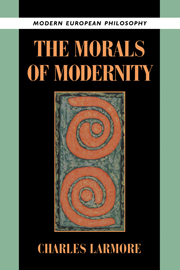3 - The Secret Philosophy of Leo Strauss
Published online by Cambridge University Press: 18 December 2009
Summary
A Weimar Intellectual
“What is it about Strauss' writings that continues to shatter respectable intellectual categories and rules, thereby arousing so much fascination and so much hatred?” This is the question with which Thomas Pangle introduced a recent collection of essays by Leo Strauss. It is not easy to answer. Certainly Strauss was a controversial figure in political philosophy, not least since his death in 1973. His former students, the most famous having been Allan Bloom, guard his memory and his teaching vigilantly. His opponents not only disagree with particular points of his scholarship, but often suggest some dangerous flaw in the character of his mind. Again, why? What prejudices, or what certainties, did he assail?
At the heart of Strauss's thinking, as Pangle went on to observe, lay the conviction that there is such a thing as moral truth. In itself, however, this is surely an unlikely spark for the passionate debates that swirl around him. The opposite view, namely that morality is but the expression of group ideology or individual preference, has indeed become a common routine of thought. But Strauss was hardly alone in this century in the defense of the possibility of moral knowledge, and the other champions of “moral cognitivism,” as it is called, have not provoked such extreme reactions. The reasons for Strauss's power to enthrall and repel must lie elsewhere.
The key, I think, is the peculiar urgency and direction of Strauss's search for moral truth.
- Type
- Chapter
- Information
- The Morals of Modernity , pp. 65 - 76Publisher: Cambridge University PressPrint publication year: 1996
- 1
- Cited by



